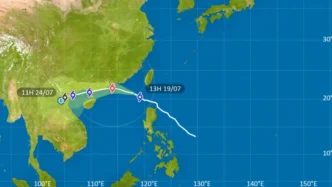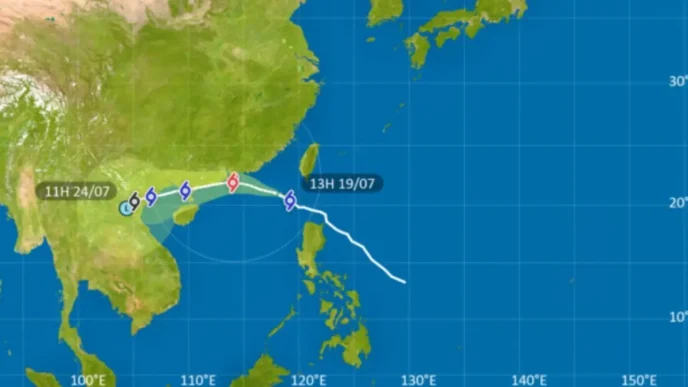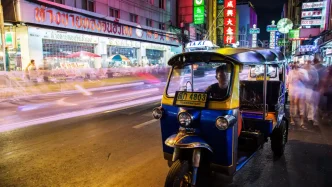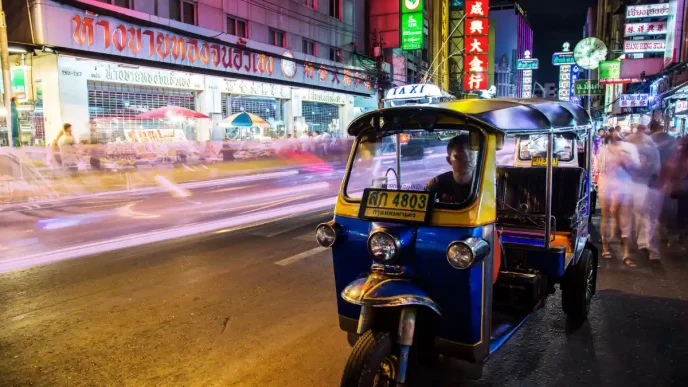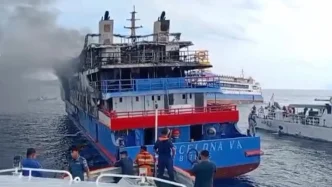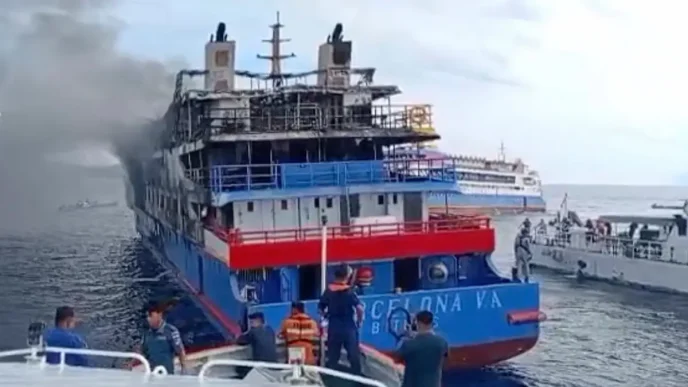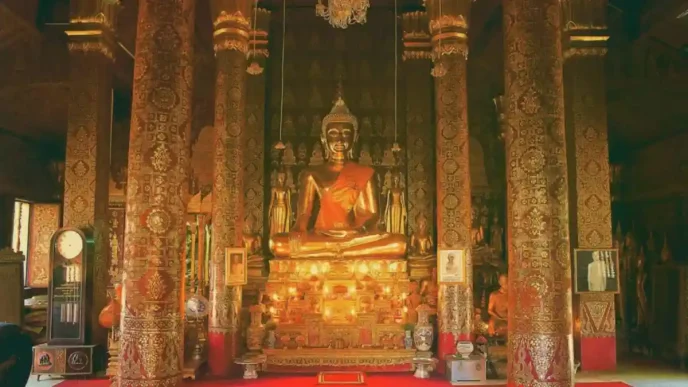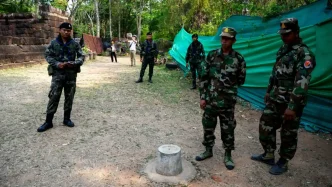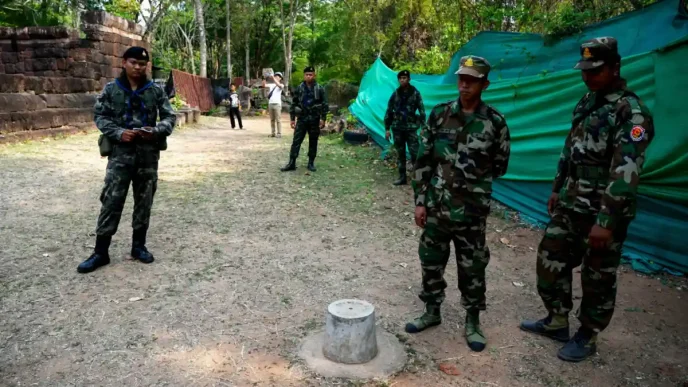In a significant cross-border operation, Thai authorities have completed the national referral mechanism (NRM) process for 260 individuals rescued from Myawaddy township in Myanmar, a region plagued by conflict and criminal networks. The victims, who were brought to safety in Tak province on 12 February, include nationals from multiple countries, with one each from Sri Lanka and India among them. Tak Governor Choocheap Pongchai confirmed that embassies are being contacted to facilitate repatriation, with 236 individuals still awaiting their return home as of this week.
The rescue operation highlights the ongoing challenges of human trafficking in South East Asia, particularly in areas like Myawaddy, which has become a hub for illicit activities amid Myanmar’s political instability following the 2021 military coup. This article explores the details of the rescue, the plight of the victims, the repatriation process, and the broader regional implications of trafficking networks operating across porous borders.
A Harrowing Ordeal in Myawaddy
The 260 individuals rescued last week endured severe exploitation, with 258 identified as victims of human trafficking. Many were lured by deceptive job advertisements promising legitimate work in Thailand, only to be trafficked across the border into Myanmar. There, they were forced into roles such as online scamming, a growing criminal enterprise in the region. Anjana Ileperuma, assistant secretary of the Sri Lankan embassy in Bangkok, shared the story of one Sri Lankan national who had been coerced into working as a scammer for five months. “He was assaulted for failing to meet the scammers’ targets,” Ileperuma revealed, adding that the victim was overjoyed to be returning home.
The rescued individuals were initially housed at the provincial territorial defence student training centre in Mueang district, Tak province. Thai authorities have provided accommodation, meals, essential supplies, and medical treatment to support their recovery. Scenes of emotional farewells were reported as some victims, including those from Sri Lanka and India, were picked up by embassy vehicles, waving goodbye to fellow survivors from other nations.
Governor Choocheap noted that while several embassies have already arranged repatriation for their nationals, the process continues for the remaining 236 individuals. “We expect this group to be repatriated by the end of this week,” he stated, underscoring the logistical challenges of coordinating with multiple governments. Additionally, two of the rescued individuals were handed over to police investigators, though specific details about their cases remain undisclosed.
Human Trafficking in the Myanmar-Thailand Border Region
The rescue operation in Tak throws a spotlight on the persistent issue of human trafficking along the Myanmar-Thailand border, a region notorious for its porous boundaries and limited law enforcement. Myawaddy, located in Kayin (Karen) State, has emerged as a focal point for trafficking networks exploiting the chaos of Myanmar’s ongoing civil conflict. Since the military coup in February 2021, the country has descended into widespread violence, with ethnic armed organisations and resistance groups clashing with the junta. This instability has created fertile ground for criminal enterprises, including trafficking and forced labour schemes targeting vulnerable populations from across Asia.
Victims are often lured with promises of well-paying jobs in Thailand, a country known for its robust tourism and industrial sectors. However, upon crossing the border—sometimes unknowingly into Myanmar—they are trapped in exploitative conditions. Online scam operations, often referred to as “pig butchering” schemes, have become particularly prevalent. These scams involve victims being forced to pose as romantic or financial partners online to defraud unsuspecting individuals worldwide. Failure to meet quotas can result in physical abuse, as reported by the Sri Lankan victim in this case.
Thai authorities have intensified efforts to combat trafficking in recent years, partly in response to international pressure and scrutiny over the country’s historical challenges with forced labour in industries like fishing and agriculture. The national referral mechanism (NRM) process, applied to the 260 victims in Tak, is a framework designed to identify and protect trafficking victims while ensuring they receive appropriate support and legal recourse. The collaboration with foreign embassies for repatriation further demonstrates Thailand’s commitment to addressing the issue, though significant challenges remain in dismantling the networks that operate across borders.
Repatriation and International Cooperation
The repatriation of the rescued victims underscores the importance of international cooperation in addressing human trafficking. Embassies of affected countries have been quick to respond, with Sri Lanka and India dispatching vehicles to retrieve their nationals. Anjana Ileperuma of the Sri Lankan embassy expressed gratitude to Thai authorities for their role in the rescue, while also appealing for assistance in locating 17 other Sri Lankan nationals believed to still be trapped in Myanmar. This plea highlights the scale of the problem, as many victims remain unaccounted for in conflict zones beyond the reach of immediate rescue operations.
Governor Choocheap’s assurance that the remaining 236 victims will be repatriated soon reflects a coordinated effort between Thai authorities and foreign missions. However, the process is not without hurdles. Identifying victims’ nationalities, verifying their identities, and arranging safe transport across borders require meticulous planning and resources. For some, the psychological and physical toll of their ordeal may necessitate ongoing support even after they return home, a factor that governments and NGOs must address.
Beyond immediate repatriation, the case raises questions about long-term strategies to prevent trafficking. Thailand, as a key transit and destination country, plays a pivotal role in regional anti-trafficking initiatives. Partnerships with neighbouring countries, including Myanmar, are complicated by the latter’s political crisis, which limits formal cooperation with the military junta. Instead, Thailand often works through local and international NGOs to conduct rescues and provide support, a model that has yielded results but struggles to keep pace with the scale of the crisis.
Broader Implications for South East Asia
The rescue of 260 victims in Tak is a microcosm of a much larger regional challenge. Human trafficking in South East Asia is driven by a complex interplay of economic disparity, political instability, and weak border controls. Countries like Myanmar, Laos, and Cambodia have become hotspots for trafficking networks, often linked to organised crime syndicates that exploit lax governance in conflict zones. The rise of online scam centres, in particular, represents a new frontier in trafficking, combining traditional coercion with digital exploitation.
For Thailand, the incident reinforces the need for stronger border security and intelligence-sharing with regional partners. While the country has made strides in improving its anti-trafficking framework—evidenced by its removal from the U.S. State Department’s Tier 2 Watch List in recent years—gaps remain in addressing root causes such as poverty and lack of legal migration pathways. Many victims are driven to seek work abroad due to limited opportunities at home, making them easy targets for traffickers.
Moreover, the situation in Myawaddy illustrates the spillover effects of Myanmar’s conflict on neighbouring states. Thailand, which shares a 2,400-kilometre border with Myanmar, has faced waves of refugees and trafficking victims fleeing violence and exploitation. The Thai government has often been criticised for its handling of such inflows, with concerns over detention conditions and the risk of refoulement—returning individuals to danger in their home countries. In this instance, however, the provision of shelter and medical care in Tak suggests a more humane approach, at least for those identified as trafficking victims.
Looking ahead, the international community must grapple with how to support vulnerable populations in conflict zones like Myanmar without legitimising oppressive regimes. Humanitarian corridors, enhanced funding for anti-trafficking NGOs, and targeted sanctions on criminal networks could form part of a broader strategy. For now, the focus remains on ensuring the safe return of the 236 individuals still in Tak, a small but critical step in addressing a pervasive regional crisis.
Challenges and Conditional Outlook
While the rescue operation marks a positive development, several challenges loom on the horizon. If further rescues are to be conducted in Myawaddy or other parts of Myanmar, Thai authorities will need to navigate complex security risks and diplomatic constraints. The presence of armed groups and criminal syndicates in these areas poses a direct threat to rescue teams, while the lack of a functioning central government in Myanmar complicates coordination. Any future operations, if planned, must prioritise the safety of both victims and responders, though no concrete plans have been confirmed at this stage.
Additionally, the long-term reintegration of repatriated victims remains uncertain. If adequate support systems are not in place—such as counselling, vocational training, or legal aid—there is a risk that survivors could fall back into cycles of vulnerability. Governments and international organisations must work collaboratively to address these gaps, though funding and political will for such initiatives are often limited.
In conclusion, the repatriation of 260 trafficking victims from Myanmar to Thailand is a testament to the resilience of survivors and the dedication of those working to combat human trafficking. Yet, it also serves as a stark reminder of the entrenched systemic issues fueling exploitation in South East Asia. As embassies and authorities finalise the return of the remaining individuals in Tak, the broader fight against trafficking demands sustained regional and global attention, lest countless others remain trapped in the shadows of conflict and crime.



